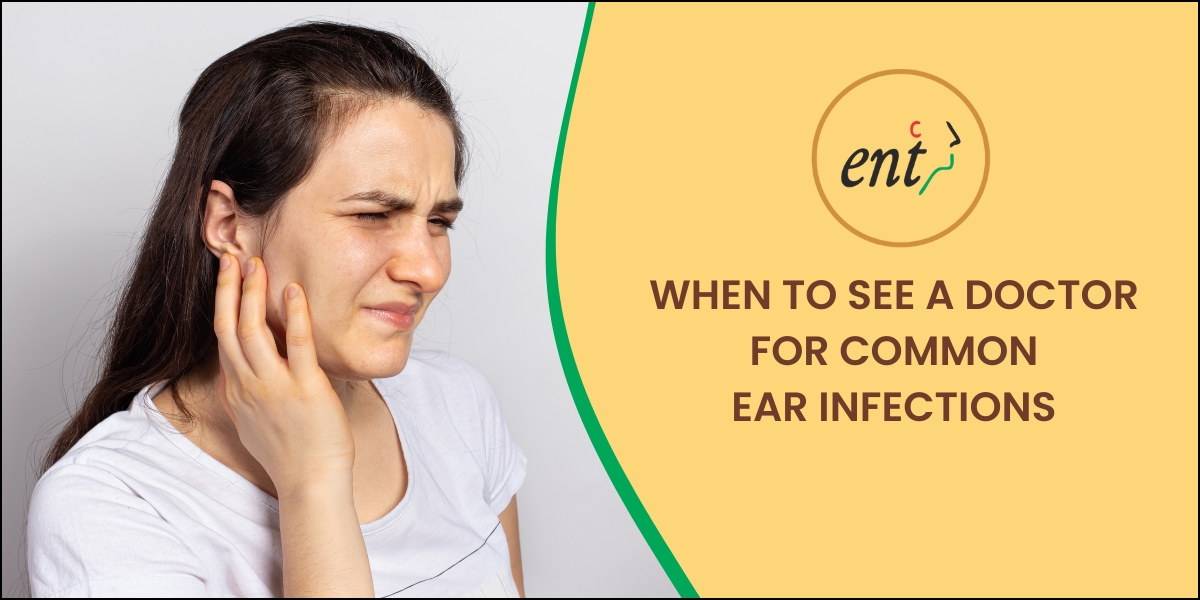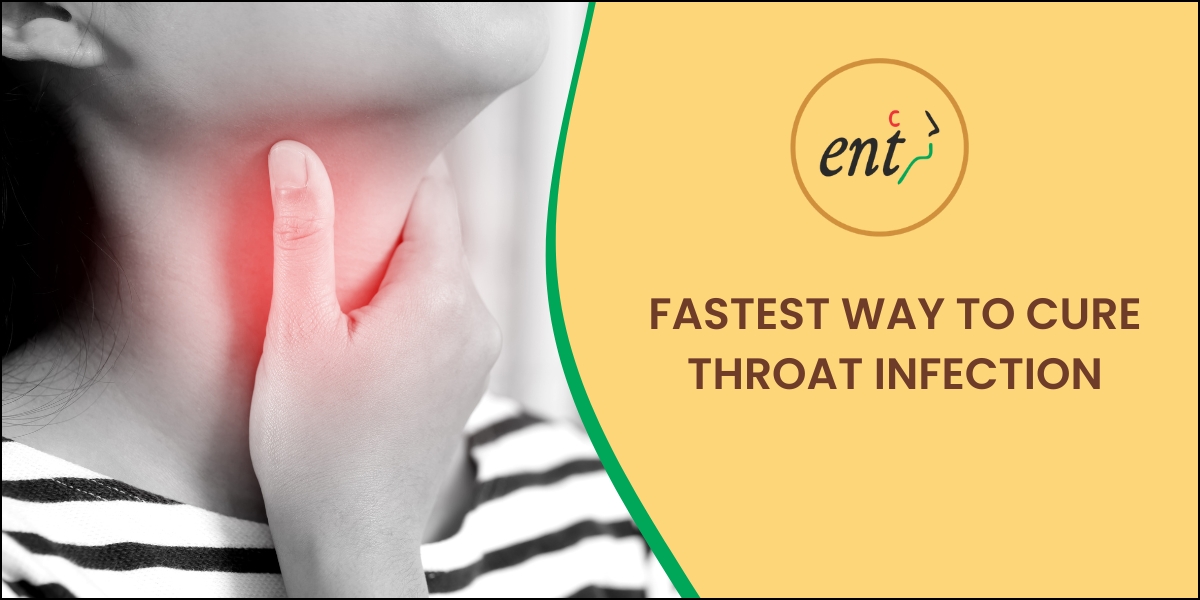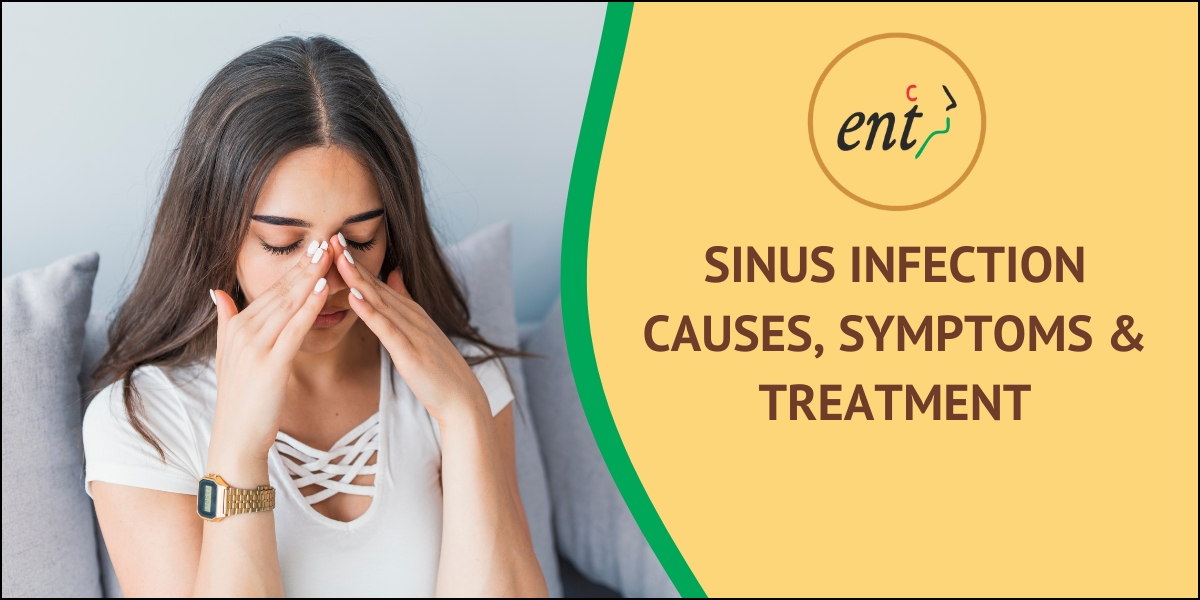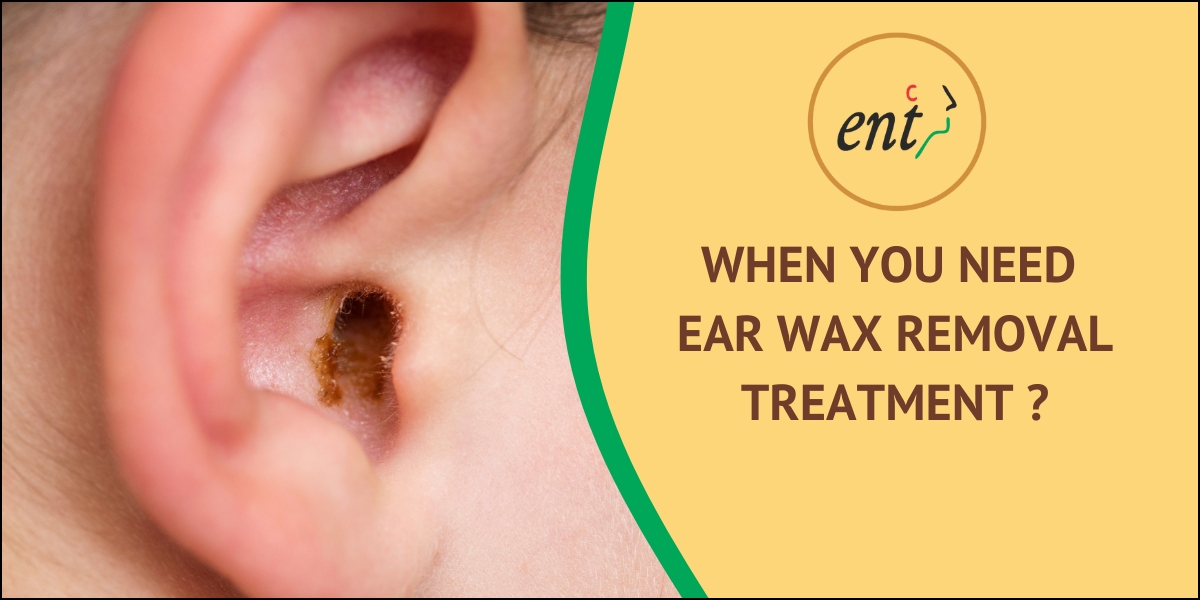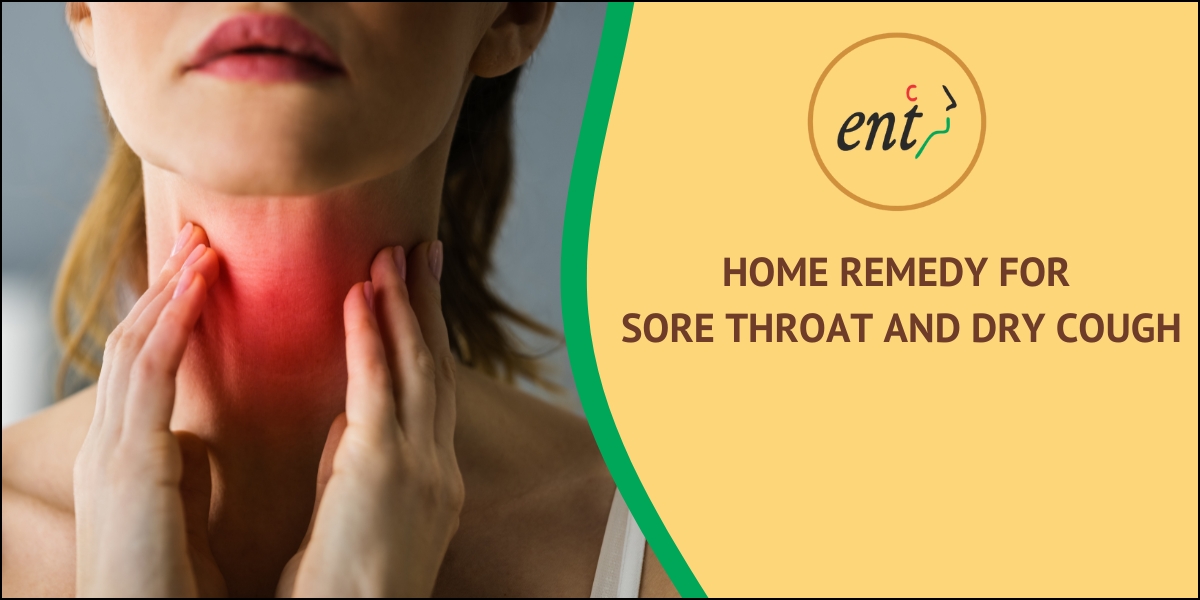Common Ear Infections: Symptoms, Causes, and When to See a Doctor Ear pain is a common ailment that affects both children and adults, often striking with a sharp, persistent ache that can be hard to ignore. While frequently associated with childhood, ear infections don’t discriminate by age. Understanding the symptoms, causes, and knowing when to seek professional help is crucial for effective treatment and preventing complications. What Are the Different Types of Ear Infections? Ear infections are generally categorized by their location within the ear: Otitis Externa (Outer Ear Infection): Often called “swimmer’s ear,” this infection occurs in the ear canal, the tube connecting the outer ear to the eardrum. It’s frequently caused by water retention that creates a moist environment for bacteria to grow. Otitis Media (Middle Ear Infection): This is the most classic type, especially in children. It involves the space behind the eardrum where small vibrating bones are located. It often starts when a cold, allergy, or sinus infection causes fluid and mucus to become trapped in the middle ear, leading to bacterial or viral growth. Otitis Interna (Labyrinthitis): An inner ear infection that affects the labyrinth, which controls your balance and hearing. This type is less common but can be more severe. Recognizing the Symptoms: Is It an Ear Infection? The symptoms can vary depending on the type of infection and the age of the patient. Common Symptoms Across All Ages: Ear pain: A persistent ache, which can be sharp, dull, or throbbing. Feeling of fullness or pressure inside the ear. Muffled hearing or temporary hearing loss. Drainage of fluid from the ear (a sign a possible eardrum rupture). Itchiness inside the ear canal (common in outer ear infections). Symptoms in Children: Tugging or pulling at the ear. Fussiness and excessive crying. Difficulty sleeping. Fever, especially in younger children. Loss of appetite. Trouble responding to quiet sounds due to hearing difficulty. What Causes an Ear Infection? Ear infections are typically caused by bacteria or viruses. They often begin after another illness, like a cold or the flu, which causes congestion and swelling in the nasal passages and throat. Key Risk Factors: Age: Children between 6 months and 2 years are more susceptible due to the size and shape of their Eustachian tubes. Group Settings: Kids in daycare are exposed to more colds and subsequent ear infections. Seasonal Factors: Ear infections are more common during fall and winter. Poor Air Quality: Exposure to tobacco smoke or high levels of air pollution can increase risk. Altitude Changes and Climate changes can affect Eustachian tube function. Swimming: For outer ear infections, swimming in contaminated water is a common cause. When Should You See a Doctor? While some mild ear infections can clear on their own, it’s important to know the red flags. Seek medical attention if you or your child experience: Symptoms that last for more than 24-48 hours. Severe ear pain. A high fever (over 102.2°F or 39°C). Pus, fluid, or blood draining from the ear. Noticeable hearing loss. Symptoms in a child under 6 months of age (always see a doctor immediately). Symptoms that worsen or do not improve after taking antibiotics. Early diagnosis and treatment are essential. Untreated ear infections can lead to more serious complications, including hearing loss, speech or developmental delays in children, and the infection spreading to other parts of the head. Expert Care for Ear, Nose, and Throat Health If you suspect an ear infection, consulting with an experienced ENT specialist is the best course of action. They can provide an accurate diagnosis, recommend appropriate treatment—which may include pain management, antibiotics, or other therapies—and offer guidance on prevention. Consult Dr. Rohit Prasad is a trusted ENT specialist in Bhosari and PCMC, dedicated to diagnosing and treating a wide range of ear, nose, and throat conditions. Recent Post Common Ear Infections: Symptoms, Causes, and When to See a Doctor What is the Fastest Way to Cure a Throat Infection? Sinus Infection – Causes, Symptoms & Treatment Feeling Blocked? When You Need Ear Wax Removal Treatment Home remedy for sore throat and dry cough contact us Name(Required) First Phone(Required)Your Message(Required)CAPTCHA
What is the Fastest Way to Cure a Throat Infection?
What is the Fastest Way to Cure a Throat Infection? That familiar scratch, the painful swallow, the raw feeling that makes talking a chore—a throat infection can stop you in your tracks. Whether it’s a viral bug or a bacterial invader, your number one question is: “How can I get rid of this fast?” While there’s no magic “cure in an instant” button, the fastest way to heal involves a combination of professional medical advice and proven at-home remedies. Let’s break down your action plan for swift relief. Step 1: Identify the Enemy (It Matters!) The speed of your recovery heavily depends on the type of infection. You can’t treat them the same way. Viral Infections (e.g., Common Cold, Flu): These are the most common culprits. Antibiotics are ineffective against them. Your body needs to fight the virus on its own, a process that typically takes 3 to 7 days. The goal here is to manage symptoms and support your immune system. Bacterial Infections (e.g., Strep Throat): Caused by bacteria like Streptococcus, these often come with severe pain, fever, and white patches on the tonsils. They require antibiotics prescribed by a doctor. With the right medication, you can start feeling better within 24-48 hours. When to See a Doctor Immediately: Severe pain or difficulty swallowing/breathing A fever over 101°F (38.3°C) A sore throat that lasts more than 48 hours White patches or pus on the back of your throat A rash or swollen lymph nodes A doctor can perform a rapid test or throat culture to determine the cause and prescribe the correct treatment—this is the single most important step for a fast cure if bacteria are involved. Step 2: Your At-Home Relief Toolkit (For Any Infection) While you recover or while medication takes effect, these remedies can significantly speed up healing and provide comfort: The Power of Salt Water Gargle: This is not an old wives’ tale. Gargling with warm salt water (1/2 teaspoon of salt in a glass of warm water) several times a day helps reduce swelling, loosens mucus, and can flush out irritants and bacteria. Hydrate, Hydrate, Hydrate: Your throat is inflamed and needs moisture. sip on warm liquids like herbal teas (chamomile, licorice root), broth, or warm water with honey and lemon. Honey naturally soothes the throat and has antibacterial properties. Avoid caffeine and alcohol, which can dehydrate you. Embrace Steam: Inhaling steam from a hot shower or a bowl of hot water can moisten a dry, scratchy throat and loosen congestion, making it easier to breathe. Rest Your Voice and Body: Your body’s energy is focused on fighting an infection. Talking strains your vocal cords and throat muscles. Give them a break. Prioritizing sleep is one of the best ways to turbocharge your immune system. Over-the-Counter (OTC) Help: Pain relievers like ibuprofen or acetaminophen can effectively reduce throat pain and fever. Lozenges can also stimulate saliva production, keeping your throat moist. Step 3: What to Avoid Avoid Irritants: Stay away from smoke, strong chemical fumes, and extremely spicy or acidic foods that can further inflame your throat. Don’t Demand Antibiotics for Viral Infections: Using antibiotics when they aren’t needed contributes to antibiotic resistance, making them less effective when you truly need them. The Fastest Path: Professional Diagnosis + Targeted Care The absolute fastest way to cure a throat infection is to stop guessing and get a professional diagnosis. A correct identification of the cause—viral or bacterial—ensures you get the right treatment from the start, saving you days of unnecessary discomfort and preventing potential complications like tonsillitis or rheumatic fever. Expert Throat Infection Treatment in Bhosari If you’re in the Bhosari, Pune area, and suffering from a persistent or severe sore throat, seeking expert care is crucial. Dr. Rohit Prasad, a renowned ENT Specialist in Bhosari, provides comprehensive diagnosis and treatment for all types of throat infections. At Dr. Prasad ENT Hospital, patients receive personalized care. The clinic is equipped to perform accurate diagnostic tests to determine the root cause of your infection. Don’t let a throat infection slow you down. Get the right treatment for a fast and complete recovery. Recent Post What is the Fastest Way to Cure a Throat Infection? Sinus Infection – Causes, Symptoms & Treatment Feeling Blocked? When You Need Ear Wax Removal Treatment Home remedy for sore throat and dry cough What is the Most Common Cause of Constant Throat Clearing? contact us Name(Required) First Phone(Required)Your Message(Required)CAPTCHA
Sinus Infection – Causes, Symptoms & Treatment
Sinus Infection – Causes, Symptoms & Treatment A sinus infection, also known as sinusitis, is a common condition where the cavities around the nasal passages become inflamed. It can cause discomfort, pain, and difficulty in breathing. Understanding its causes, symptoms, and treatment can help manage the condition effectively. If you’re suffering from persistent sinus issues, consult Dr. Rohit Prasad, a leading ENT doctor in Bhosari & Moshi, Pune, for expert diagnosis and treatment. What is a Sinus Infection? Sinuses are air-filled spaces in the skull that help humidify air and produce mucus. When these sinuses get blocked and filled with fluid, bacteria, viruses, or fungi can grow, leading to an infection. Types of Sinus Infections Acute Sinusitis – Lasts up to 4 weeks, often due to a cold or allergies. Subacute Sinusitis – Persists for 4-12 weeks. Chronic Sinusitis – Lasts more than 12 weeks, often requiring medical intervention. Recurrent Sinusitis – Multiple episodes within a year. Causes of Sinus Infection Several factors can lead to sinusitis, including: Viral Infections (Common cold, flu) Bacterial Infections (Strep, Staph) Fungal Infections (Less common, but serious) Allergies (Pollen, dust, pet dander) Nasal Polyps (Non-cancerous growths) Deviated Septum (Misaligned nasal passage) Environmental Irritants (Smoke, pollution) Symptoms of Sinus Infection Common signs include: Nasal congestion Thick, discolored mucus Facial pain or pressure Headache Reduced sense of smell & taste Cough & sore throat Fatigue & fever If symptoms persist, visit Dr. Rohit Prasad, a trusted ENT specialist in Pune, for proper evaluation. Treatment for Sinus Infection 1. Home Remedies Steam Inhalation – Relieves congestion Saline Nasal Spray – Clears nasal passages Hydration – Thins mucus Warm Compress – Reduces facial pain 2. Medications Decongestants (For short-term relief) Antihistamines (For allergy-related sinusitis) Pain Relievers (Ibuprofen, Acetaminophen) Antibiotics (For bacterial infections) 3. Medical Treatments Nasal Corticosteroids (Reduces inflammation) Balloon Sinuplasty (Minimally invasive procedure) Endoscopic Sinus Surgery (For chronic cases) For advanced treatment, consult Dr. Rohit Prasad, an experienced sinus specialist in Bhosari & Moshi, Pune. When to See a Doctor? Seek medical help if you experience:– Severe headache or high fever– Symptoms lasting more than 10 days– Vision problems or swelling around eyes– Confusion or neck stiffness Prevention Tips Avoid smoking & polluted areas Manage allergies effectively Use a humidifier in dry climates Wash hands frequently to prevent infections Sinus infections can be bothersome, but with proper care, they can be managed effectively. If you’re looking for the best ENT doctor in Pune, Dr. Rohit Prasad provides expert care for sinusitis, allergies, and nasal disorders in Bhosari & Moshi, Pune. Recent Post Sinus Infection – Causes, Symptoms & Treatment Home remedy for sore throat and dry cough What is the Most Common Cause of Constant Throat Clearing? Snoring and Sleep Apnea: ENT Solutions When to See an ENT Specialist for Persistent Cough contact us Name(Required) First Phone(Required)Your Message(Required)CAPTCHA
Feeling Blocked? When You Need Ear Wax Removal Treatment
Feeling Blocked? When You Need Ear Wax Removal Treatment Do you often experience a blocked sensation in your ears? Are you struggling with hearing difficulties or discomfort? Ear wax buildup could be the culprit! While ear wax (cerumen) is natural and protects your ears, excessive accumulation can lead to problems. We’ll discuss when you might need ear wax removal treatment What Causes Excessive Ear Wax Buildup? Ear wax is produced by glands in the ear canal to trap dust and prevent infections. However, factors like: Using cotton swabs (pushing wax deeper) Wearing hearing aids or earplugs frequently Narrow or hairy ear canals Overproduction of wax …can lead to blockages, causing symptoms like: Signs You Need Ear Wax Removal Treatment Muffled Hearing – If sounds seem dull or distant, wax buildup may be obstructing your ear canal. Earache or Discomfort – Pressure from hardened wax can cause pain. Tinnitus (Ringing in Ears) – Blockages may lead to unusual noises. Itchiness or Discharge – Excess wax can cause irritation or infection. Dizziness or Coughing – Severe blockages may affect balance or trigger reflexes. If you experience these symptoms, avoid DIY methods like ear candling or sharp objects, as they can damage your eardrum. Instead, consult an ENT specialist for safe removal. Professional Ear Wax Removal at Dr. Prasad ENT Hospital At Dr. Prasad ENT Hospital, Dr. Rohit Prasad provides safe and painless ear wax removal in Bhosari, Pune, using advanced techniques such as: Microsuction (gentle suction under microscope guidance) Irrigation (ear syringing) (flushing out wax with warm water) Manual Removal (using specialized tools) These methods ensure quick relief without complications, restoring your hearing and comfort. When to See an ENT Doctor? Seek professional help if:– Home remedies (like olive oil drops) don’t work.– You experience severe pain or hearing loss.– There’s bleeding or discharge from the ear. Preventing Ear Wax Blockages Avoid cotton swabs – Clean only the outer ear with a cloth. Use ear drops – If prone to wax buildup, ask your ENT for recommendations. Regular check-ups – Especially if you use hearing aids. Ignoring ear wax buildup can lead to infections or hearing issues. If you’re in Pune (Bhosari & Moshi) and need professional ear wax removal, visit Dr. Prasad ENT Hospital for expert care. Recent Post Feeling Blocked? When You Need Ear Wax Removal Treatment Sinus Infection – Causes, Symptoms & Treatment Home remedy for sore throat and dry cough What is the Most Common Cause of Constant Throat Clearing? Snoring and Sleep Apnea: ENT Solutions contact us Name(Required) First Phone(Required)Your Message(Required)CAPTCHA
Home remedy for sore throat and dry cough
Home remedy for sore throat and dry cough A sore throat and dry cough can be incredibly uncomfortable, often caused by infections, allergies, or environmental irritants. While medical treatment may be necessary in severe cases, several home remedies for sore throat and dry cough can provide quick relief. Here are some natural solutions to soothe your symptoms. 1. Saltwater Gargle One of the oldest and most effective home remedies for throat irritation is gargling with warm salt water. It helps reduce inflammation and kills bacteria in the throat. How to use: Mix ½ teaspoon of salt in a glass of warm water. Gargle for 15-30 seconds, then spit it out. Repeat 2-3 times daily. 2. Honey and Warm Water Honey has natural antibacterial and soothing properties, making it an excellent home remedy for dry cough. How to use: Mix 1-2 teaspoons of honey in warm water or herbal tea. Drink it 2-3 times a day for relief. (Note: Avoid giving honey to children under 1 year old.) 3. Ginger Tea Ginger has anti-inflammatory effects that can help ease throat pain and suppress coughing. How to use: Boil fresh ginger slices in water for 5-10 minutes. Strain, add honey, and drink warm. 4. Turmeric Milk (Golden Milk) Turmeric contains curcumin, which has powerful anti-inflammatory and antimicrobial benefits. How to use: Mix ½ teaspoon of turmeric powder in warm milk. Drink before bedtime for relief from nighttime dry cough. 5. Steam Inhalation Dry air can worsen throat irritation. Steam inhalation helps moisturize the throat and clear congestion. How to use: Boil water and pour it into a bowl. Lean over the bowl, cover your head with a towel, and inhale the steam for 5-10 minutes. 6. Licorice Root Tea Licorice root is known for its soothing effects on the throat and can help reduce coughing. How to use: Steep licorice root in hot water for 5-10 minutes. Strain and drink warm. 7. Stay Hydrated Drinking plenty of fluids keeps the throat moist and helps flush out toxins. Opt for: Warm water Herbal teas Broth-based soups When to See a Doctor? If your sore throat and dry cough persist for more than a week or are accompanied by: High fever Difficulty breathing Swollen lymph nodes Dr. Rohit Prasad – Throat Specialist in Bhosari For persistent sore throat, chronic cough, or throat infections, visit Dr. Rohit Prasad, a renowned ENT specialist in Bhosari, for expert diagnosis and treatment. Recent Post Home remedy for sore throat and dry cough What is the Most Common Cause of Constant Throat Clearing? Snoring and Sleep Apnea: ENT Solutions When to See an ENT Specialist for Persistent Cough Hearing Loss in Adults: Early Signs and Next Steps contact us Name(Required) First Phone(Required)Your Message(Required)CAPTCHA

